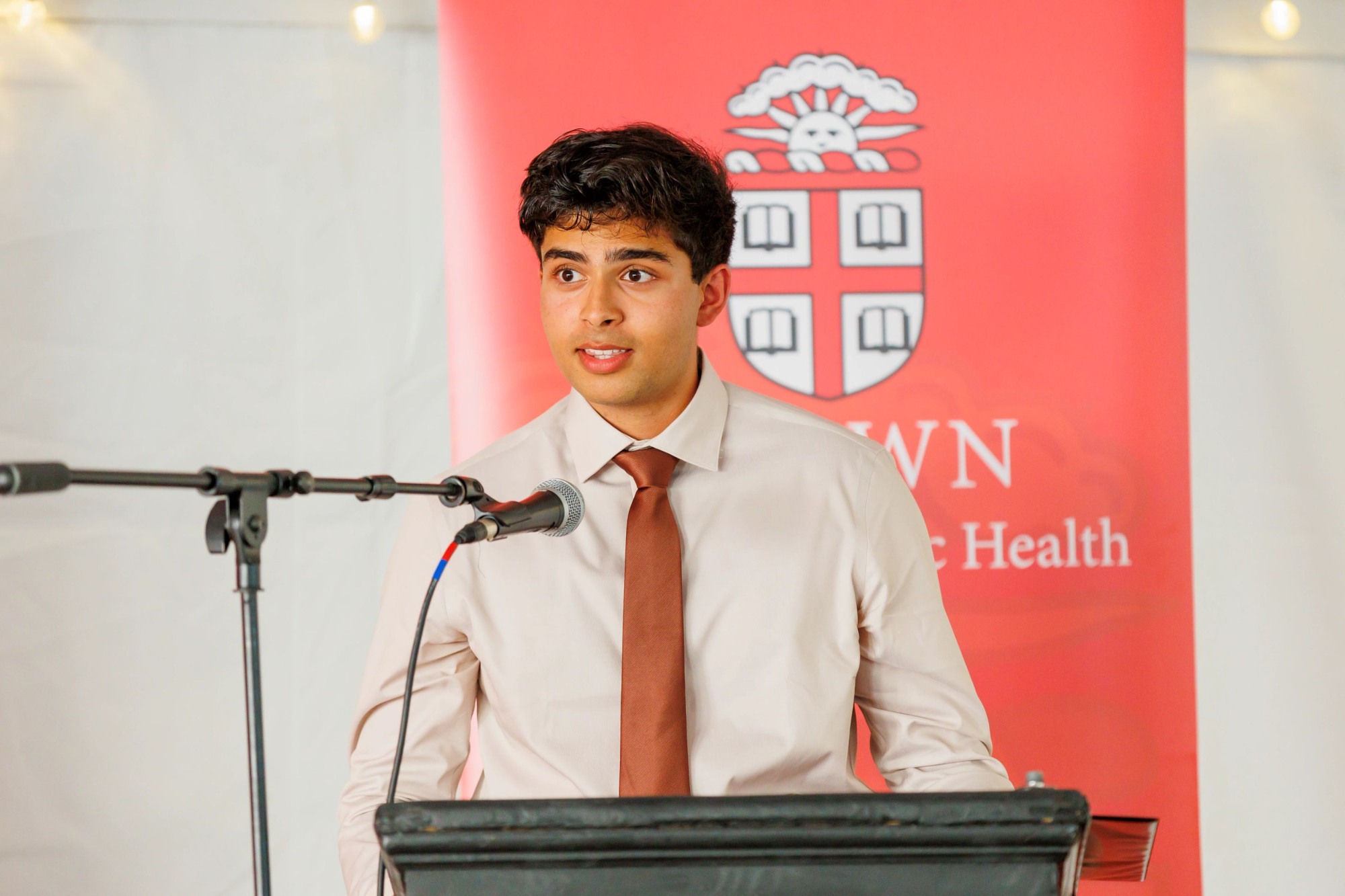To be sure, Meehir Dixit ’24 was no ordinary student while he was at Brown. With an exceptional undergraduate record and three published research papers already under his belt, Dixit’s talent, drive and commitment to public service were obvious to faculty at the School of Public Health.
As part of his undergraduate research, Dixit worked with Professors Amal Trivedi and David Meyers on a project examining Medicare Advantage plans. They focused on contract terminations by insurance companies and the Centers for Medicare & Medicaid Services (CMS) and found that about 20% of contracts were terminated between 2011 and 2020, disproportionately affecting Black beneficiaries. The study was published in JAMA Health Forum In 2022.
Dixit also worked with Maricruz Rivera-Hernandez, associate professor of health services, policy and practice, focusing on home health equity indicators in Puerto Rico compared to five U.S. states with large Puerto Rican populations. This resulted in a research paper published in the Journal of the American Geriatrics Society in 2023, with Dixit as co-lead investigator.
He then followed up his work with Professors Trivedi and Meyers by investigating what happens to Medicare Advantage beneficiaries after contract termination. Dixit presented this research at Brown’s Public Health Research Day, winning an award for his poster. The study results were published in JAMA Network Open this August.
As if this was not enough, Dixit was selected as the undergraduate speaker for the School of Public Health’s commencement festivities last May. A native of the Chicagoland area, he is currently applying to medical school.
We spoke to Dixit about his experiences as an undergraduate, his work as a research assistant at the School of Public Health since and his plans for the future.
Can you tell us a bit about your undergraduate years at Brown?
My classes at Brown actually started in January 2021 instead of September of 2020 due to the pandemic. During that extra time, I worked as a medical scribe at a nephrology practice in suburban Illinois. The practice mainly served minoritized patients—primarily Hispanic and African American communities, many of whom were low-income and either on Medicaid or uninsured. This experience truly solidified my interest in public health. I’d been intrigued by public health before, but working with these patients opened my eyes to the social determinants of health in ways I hadn't previously considered, like food deserts and the specific ways income affects health. That experience deepened my focus on the intersections of social and economic factors with health.
When I got to Brown, I took Professor Ira Wilson’s “Healthcare in the US” course, where you dive into social determinants of health pretty much right away. Inspired by this, I wanted to get involved with a club that focused on these issues. That’s when I found Connect for Health.
